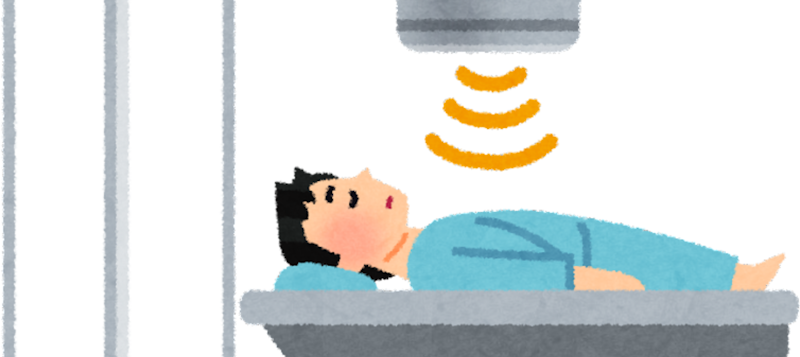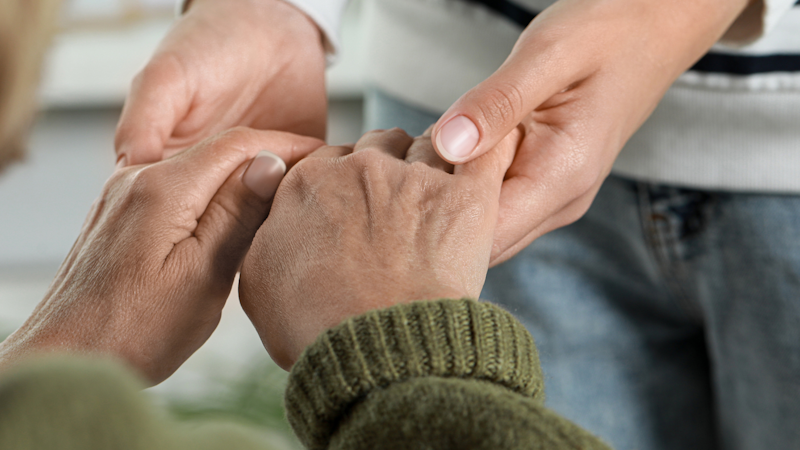Your Guide to Radiotherapy
Starting cancer treatment can feel overwhelming. We're here to help with a series of gentle, practical guides - beginning with radiotherapy. Whether you're newly diagnosed or supporting someone you love, these resources are designed to offer clarity, comfort, and a bit more confidence.
May 23, 2025

❓WHAT IS RADIOTHERAPY?
Radiotherapy (also known as radiation therapy) uses high energy rays to destroy or shrink cancer cells. It may be used on its own or in combination with other treatments like chemotherapy or surgery. The goal is to target cancer cells as precisely as possible while protecting healthy tissues.
🔍 TYPES OF RADIOTHERAPY
There are several forms of radiotherapy. Your care team will recommend the most appropriate for you:
1. External Beam Radiation Therapy (EBRT)
The most common form of radiotherapy. A machine directs radiation at the cancer from outside the body. It is usually given daily (Monday to Friday) for several weeks.
2. Brachytherapy (Internal Radiation Therapy)
A small radioactive source is placed inside or near the tumor, delivering a strong dose directly to the cancer. It’s commonly used for cancers such as prostate, cervix, or breast. It may be temporary or permanent.
3. Systemic Radiation Therapy
This involves swallowing or receiving an injection of radioactive substances that travel through the bloodstream to target cancer cells. It's often used for thyroid cancer or bone metastases.

💡 DID YOU KNOW ?
Before starting treatment, your radiation oncologist, dosimetrist, and medical physicist work together using advanced planning software. This process helps deliver the maximum dose to the tumor while protecting healthy organs and tissue as much as possible.
🗓️ WHAT WILL MY SCHEDULE LOOK LIKE ?
Radiation therapy is often given once a day, Monday to Friday. However, some patients may receive smaller doses twice a day or higher doses every other day. These personalized schedules aim to improve results and reduce side effects. It takes about 5 minutes to get your radiation treatment, but you will likely be scheduled for 15-30 minutes in the treatment room.
💬 QUESTIONS TO ASK TO YOUR RADIOTHERAPY DOCTOR?
Bring these to your first consultation (and feel free to add your own):
What is the goal of my treatment?
What type of radiotherapy will I receive?
How long will treatment last?
What side effects might I experience?
Will I be able to work or maintain my daily routine?
Are there any long-term effects?
Is financial or emotional support available?
What happens after treatment ends?
Tip: Bring a trusted friend or family member for support and note taking. No question is too small.
⚠️ UNDERSTANDING SIDE EFFECTS
Most side effects are limited to the treated area, begin in the second or third week of treatment, and ease within weeks of finishing.
Common short-term side effects:
Fatigue (mild to moderate)
Skin irritation (similar to sunburn)
Dryness or soreness, especially with head, neck, or chest radiation
Appetite changes or difficulty swallowing (depending on the area)
Most people can continue part or all of their daily routines. Always inform your care team about any discomfort - they can offer helpful strategies.
🧴 SKIN CARE DURING RADIATION
Radiation affects the skin in the treatment area. Reactions can include redness, dryness, peeling, or darkening. These are usually temporary and manageable with good care.
Here’s how to protect your skin:
Wash gently with lukewarm water and mild soap. Pat dry.
Avoid rubbing, scratching, or shaving the area.
Do not use alcohol or alcohol pads on your skin.
Use only lotions or ointments approved by your care team. Choose a moisturizer without fragrances.
Wear soft, loose-fitting clothes (e.g. cotton).
Avoid sun exposure, wear protective clothing and use SPF 30+ if allowed.
Don’t use adhesive bandages, perfume, or deodorants unless approved.
Avoid swimming pools, hot tubs, and heat/cold packs on the area.
Check skin folds and the radiation exit site (often on the opposite side of your body).
Skin reactions may worsen until about a week after treatment ends and then begin to heal. Treated skin may remain slightly thinner or more sensitive long term, so keep it moisturized and protected even after treatment.

💖 CARING FOR YOURSELF DURING TREATMENT
Radiation therapy is not just physical—it can be emotionally draining as well. Here’s how to care for your whole self:
Rest often, and allow yourself time to recover.
Ask for help, you don’t have to do this alone.
Eat well and stay hydrated.
Talk to your care team about any concerns.
Seek emotional support, join a group, talk to a coach, or reach out to someone.
✨ YOU ARE NOT ALONE
At Cancer Care UAE, we understand that navigating radiotherapy can feel overwhelming. That’s why we’re here with resources, community, and professionals ready to support you every step of the way. If you need someone to talk to, want help preparing for your consultation, or have questions about anything in this guide, don’t hesitate to reach out.
Subscribe to our newsletter
Stay informed, inspired, and supported! Our monthly newsletter delivers expert advice, real stories, and practical tips to help you navigate life during and after cancer with confidence and hope.




